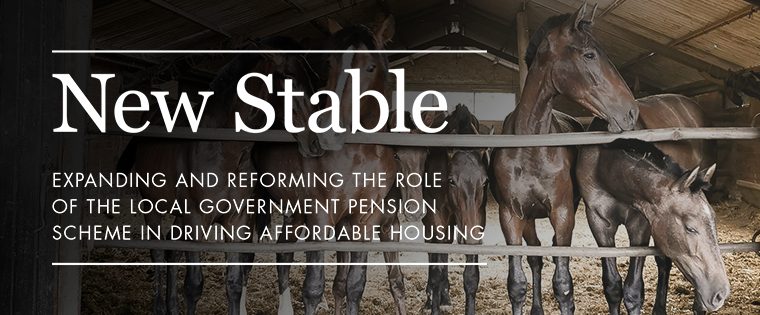Response to The Good Economy’s White Paper: “Scaling-Up Local Investing for Place-Based Impact: A Strategic Framework and Guidance for LGPS”

One of the most salient concepts floated by The Good Economy (TGE)’s white paper on the Local Govermment Pension Scheme (LGPS) is the necessity of defining what local can and should mean to administering authorities and their pools in the context of meeting allocation goals for local investment.
As a framework, this is where the TGE’s white paper becomes immensely germane to the pragmatic needs of investment. The report recognises that local investment must exist within a diversity of characteristics not necessarily solely geographic, and so that stakeholders within the investment sphere must agree upon what local investment means to them, rather than, say, what it means to national government.
New Stable, Localis report from earlier this year, addresses a complementary suite of ideas, contributing to the wider debate surrounding institutional investment in place touched upon by TGE’s report, acknowledging additionally that there can be real friction between what government wants and what aligns with the fiduciary sense of pension fund managers.
It is worth noting that evidence from Canada suggests that there is a somewhat limited terminal velocity that can be reached before Defined Benefit pension schemes begin to chafe under government diktat concerning local investment. TGE’s white paper assures that its framework for LGPS local investment functions within a disciplined fiduciary framework.
But, regardless of fund manager buy-in to government policies, New Stable and TGE’s white paper both agree completely on the necessity of an agreed-upon framework of metrics to evaluate the social impact of LGPS investments, building as the white paper suggests on the progress already made by pools in terms of measuring local impact.
Likewise, the importance of not only that definition of ‘local’ – one that is tailored to the context of place and region – but also of ensuring a standard for measuring local investment will be key to ensuring horizontal accountability and clarity across funds, while supporting LGPS pools to achieve their new prerogative of impact reporting.
New Stable’s focal point, from a more granular perspective than TGE’s total place-based impact investing focus, is what institutional investment can do to alleviate the housing crisis. Recent analysis from the Financial Times has highlighted that the housing crisis is actually somewhat divorced from the supply of housing when compared to demand, at least in gross terms1. As the FT article notes, the significant gap between house prices and household incomes is “unlikely to be addressed without significant falls in house prices and increases in overall property taxes,” as opposed to straight-batting the crisis with policy that favours housebuilding numbers over anything more nuanced.
A previous report from Localis, Biting the Bullet, addresses the tax reform side of the argument, and in particular considers the case for land value taxation. As for the former point, New Stable analyses the opportunity that the LGPS offers for investment that targets the nuanced needs of place. As TGE notes, “Housing is inherently local,” meaning that from an implementation perspective, housing delivery has local needs and will have local impact. For LGPS funds, therefore, the argument in favour of housing is easily made when concerning the local investment responsibilities of institutional investors.
TGE’s white paper additionally addresses the necessity for the LGPS to function in alignment across different levels of place governance, including such facets of the government’s policy agenda for growth as Local Growth Plans, English devolution, and national financial institutions such as the National Wealth Fund (NWF) and Homes England.
New Stable is in agreement and argues further that the NWF should extend its mandate to include the provision of social housing as significant national infrastructure and that there is an overarching necessity for strategic and local authorities across England to receive long-term financing in order to address the barriers holding investors back from understanding where their investment, in housing or other tangible place assets.
A thread running through both reports is the vital role that coordination is going to play in the context of the shifting landscapes across both the local government and pensions sectors, and so it will be similarly essential for stakeholders across the board to have ways to evaluate the performance of investment decisions to ensure that all the moving parts have a reliable foundation from which to coordinate.
So, new and innovative investment products, performance metrics, and a flexible definition of local that works for investors will all be central to the LGPS’ future in place investment.
Sandy Forsyth is lead researcher Localis and author of New Stable – expanding and reforming the role of the Local Government Pension Scheme in driving affordable housing
